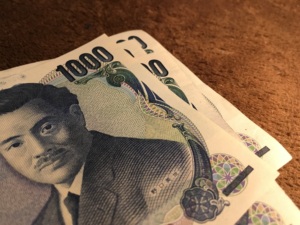Previously I discussed the transaction taxes you have to pay at time of the acquisition of the property.
When you are holding the property (both land and building) in Japan, you need to pay two annual taxes whether you are making money out of the investment or not regardless of the purpose of the ownership.
One is fixed asset tax and second is city planning tax.
Land and houses and buildings on which the city planning tax is levied are the same as the objects of taxation for the fixed assets tax.
When the deal went through. the new owner’s first annual property-tax bill came to standard rate 1.7% of its assessed value.
Unlike London or New York, in Japan the same tax rate is applied to price band.
– Fixed property tax
Fixed property tax is a tax that is levied on the owner of land, building.
It is taxed on the owner registered in the fixed asset tax register as of January 1st of every year.
Tax amount = accessed value × 1.4%
※ tax rate varies depending on municipality
– City planning tax
Urban planning tax is a tax imposed on landowners and building owners and is taxed together with property tax.
Tax amount = assessed values × 0.3%
* Tax rate varies depending on municipality
*
There are four public systems for land evaluation:
1.average land prices
2.main-street land prices
3.assessed values of fixed assets
4.standard land prices.
The assessed values of fixed assets are announced by the government
every 3 years.
Fixed asset tax assessed value for fixed property taxis evaluated by the fixed asset valuation criteria prescribed by the Minister for Internal Affairs and Communications.
Evaluation is performed by fixed asset evaluators in principle, the municipal chief (typically city mayor) will decide the value.
valuation is renewed every three years.
– In order to protect homeowners, tax reduction of
residential land (land only) is being introduced.
For residential land, fixed property tax and city planning tax are reduced.
The reduction is applicable for own resident, second house other than villa, for rental housing with certain restrictions.
(1) Reduction of the assessed value of fixed property tax is illustrated as
follows.
a) Small residential area of 200 m² or less
Evaluation amount becomes one sixth of the official value.
b) Residential land exceeding 200 m²
Evaluation amount becomes one third of the official value.
* For residential lots exceeding 200 square meters, portions up to 200 m² will be small-scale residential lots and one-sixth
(2) Reduction of the evaluation value of city planning tax
a) Small residential area of 200 m² or less
Evaluation amount becomes one third of the official value.
b) Residential land exceeding 200 m²
Evaluation amount becomes two third of the official value
Japan is recently facing the problem of empty or abandoned houses.
Those who inherited the houses from their parents do not actually
reside their inherited houses and leave them as empty.
If they can exit the property, they would do so but the often those houses
valued very low.
And tax rate for residents is blessed with a massive tax break, people
who can not get rid of their parents houses would keep them empty
to enjoy the tax break.
In another words, special measures of the reduced tax assessed value is identified
as one of the causes of empty houses.
*
If your property generates the positive income after cost, you need to pay the income tax and resident
tax on the real estate income every year.
Real estate income shall be income arising from the lending of real property, any right on real property.
Toshihiko Yamamoto
Real estate investing consultant and author.
Toshihiko is currently writing a book about the real estate investing in Japan
for foreign investors.
Founder of Yamamoto Property Advisory in Tokyo.
International property Investment consultant and licensed
real estate broker (Japan).
He serves the foreign companies and individuals to buy and sell
the real estates in Japan as well as own homes.
He holds a Bachelor’s degree in Economics from
Osaka Prefecture University in Japan
and a MBA from Bond University in Australia


